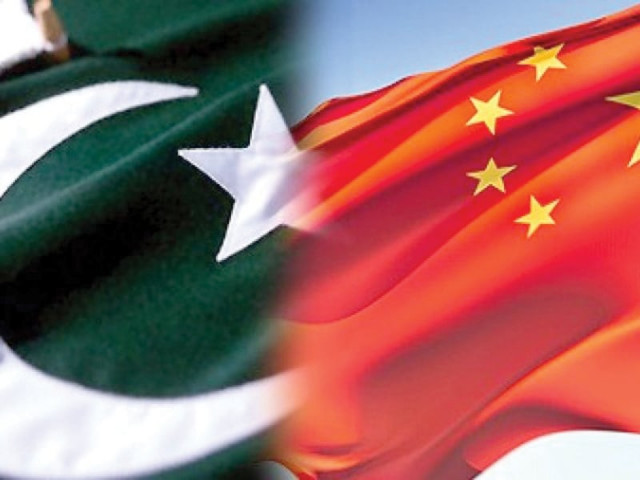Second phase of FTA: Pakistan, China fail to overcome differences
Come up with different timeframes for lowering duties, will meet again in March.

The two sides made a big headway in the banking sector and would ease the conditions for establishing bank branches in each other’s country. STOCK IMAGE
Differences between Pakistan and China persisted over a further reduction in tariffs as they could not arrive at a consensus for implementing the second phase of the free trade agreement (FTA) in the latest round of talks.
The third meeting of the second phase of negotiations ended without any agreement despite continuing for three consecutive days. China insisted on going ahead with the original plan that called for reducing duties on 90% of the tariff lines in order to further liberalise the trade regime.
Based on an understanding that the tariff reduction modalities of the second phase of the FTA would be separate from the first phase, both sides offered different timelines for bringing down the duties, according to a statement issued by the Ministry of Commerce on Thursday.
They agreed that these timeframes would be discussed further in the next round of negotiations scheduled to be held in Beijing at the end of March, said the ministry. They would try their best to bridge the gap between their tariff reduction mechanisms.

Pakistan and China also agreed to further analyse the offers including the trigger mechanism for special safeguard measures and give their recommendations by mid-February.
Pakistan proposed that if its industries were adversely affected by the reduction in duties, the country would have the option to revert to the old duty structure.
In the talks, Pakistan’s delegation was led by Ministry of Commerce Additional Secretary Robina Ather. Ministry of Commerce Deputy Director General Yao Wenliang led the Chinese side.
However, the two sides made a big headway in the banking sector and would ease the conditions for establishing bank branches in each other’s country.
China agreed to cut the capital needed for establishing a bank branch. The asset requirement will be brought down to $15 billion from $20 billion for all Pakistani banks at the end of the year prior to the submission of an application, according to the official announcement.
Pakistani banks will also be able to run their businesses in Chinese currency renminbi after one year of operations in China compared to the previous condition of three years. The requirement of being profitable for two consecutive years prior to the submission of application will be removed.
At present, inward remittances and letters of credit are routed through foreign banks. However, once Pakistani banks start running in China, financial transactions will be routed through these banks.
Chinese investments for the economic corridor will also be channelled through Pakistani banks.
There was an air of expectation that an electronic data exchange related to the implementation of FTA would be launched next year.
They agreed to establish a working group on trade in services and investment, which would hold its meeting at the same time when the next round of FTA talks would get under way in March.
The Chinese side gave assurances that it would consider concerns of Pakistani exporters about the inspection and quarantine process for rapeseed meal and canola seed.
The meeting participants noted that the trade figures of the two countries varied greatly. In order to highlight the reasons of discrepancy, they could undertake separate studies and the outcome would be shared by the end of January.
Currently, the volume of bilateral trade is in the range of $10 billion to $14 billion.
While assessing achievements of the first phase of the FTA, both sides voiced concern over the insufficient utilisation of concessions, impact on the local industry as a result of the concessions and misuse of the certificate of origin, which could be addressed in the second phase.
Published in The Express Tribune, January 9th, 2015.
Like Business on Facebook, follow @TribuneBiz on Twitter to stay informed and join in the conversation.



















COMMENTS
Comments are moderated and generally will be posted if they are on-topic and not abusive.
For more information, please see our Comments FAQ